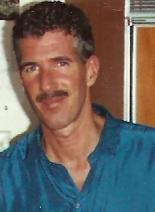Warren Sonbert
| Warren Sonbert | |
|---|---|
 |
|
| Born |
26 June 1947 Brooklyn, New York |
| Died |
31 May 1995 (age 47) San Francisco, California |
| Nationality | American |
| Known for | Experimental film |
Warren Sonbert (June 26, 1947–May 31, 1995) was an acclaimed American experimental filmmaker whose work of nearly three decades began in New York in the mid-1960s, and continued in San Francisco throughout the second half of his life. Known for the exuberant imagery of films such as Carriage Trade and especially for their intricate and innovative editing, he has been described as "the supreme Romantic diarist of the cinema" as well as "both a probing and playful artist and a keen intellect reveling in the interplay between all the creative arts."
"Critics have tried to pin down Sonbert's cinema with catchy formulations," wrote David Sterritt, but "his works are not really diary films, since their carefully shaped contours are determined more by aesthetic insight than daily experience, and to compare them with 'explosions in a postcard factory' is to acknowledge their boisterous variety while missing their ecstatic precision."
A protégé of the avant-garde filmmaker Gregory J. Markopoulos but inspired by the work of Hollywood auteurs like Alfred Hitchcock and Douglas Sirk as well as by experimental cinema, Sonbert premiered his first, short films, to critical enthusiasm, in 1966 while a student at New York University. His first film, Amphetamine, featured a shock cut to two young men passionately embracing as the camera swooped around them in the youthful cinephile's homage to the 360-degree kiss in Hitchcock's Vertigo. The films that followed captured his friends at work and play, often in studios, galleries, or boutiques, and were frequently accompanied by rock songs of the recent period, whose energy added to the power of their rapid editing. In his second film, Where Did Our Love Go?, Sonbert said in 1967, "I used mostly old rock 'n roll—the saddest and most nostalgic music there is."
Roger Greenspun's review of a 1968 retrospective in New York began: "During the last weekend in January the Film Makers' Cinematheque offered a three-and-one-half-hour program consisting of the collected, but not quite complete, works of Warren Sonbert. The program's title, 'Introducing Warren Sonbert,' wasn't really accurate, because several of the films had been shown publicly before ... Sonbert now has a following, as the overflow crowds at the Cinematheque testify, and it seems more than likely that his films will be shown again. I think that anybody interested in the movies should see them, not because Sonbert is what's happening, but because he is so extraordinarily and consistently good. He is also highly enjoyable, fun to look at, apparently without a message but not without meaning."
...
Wikipedia
